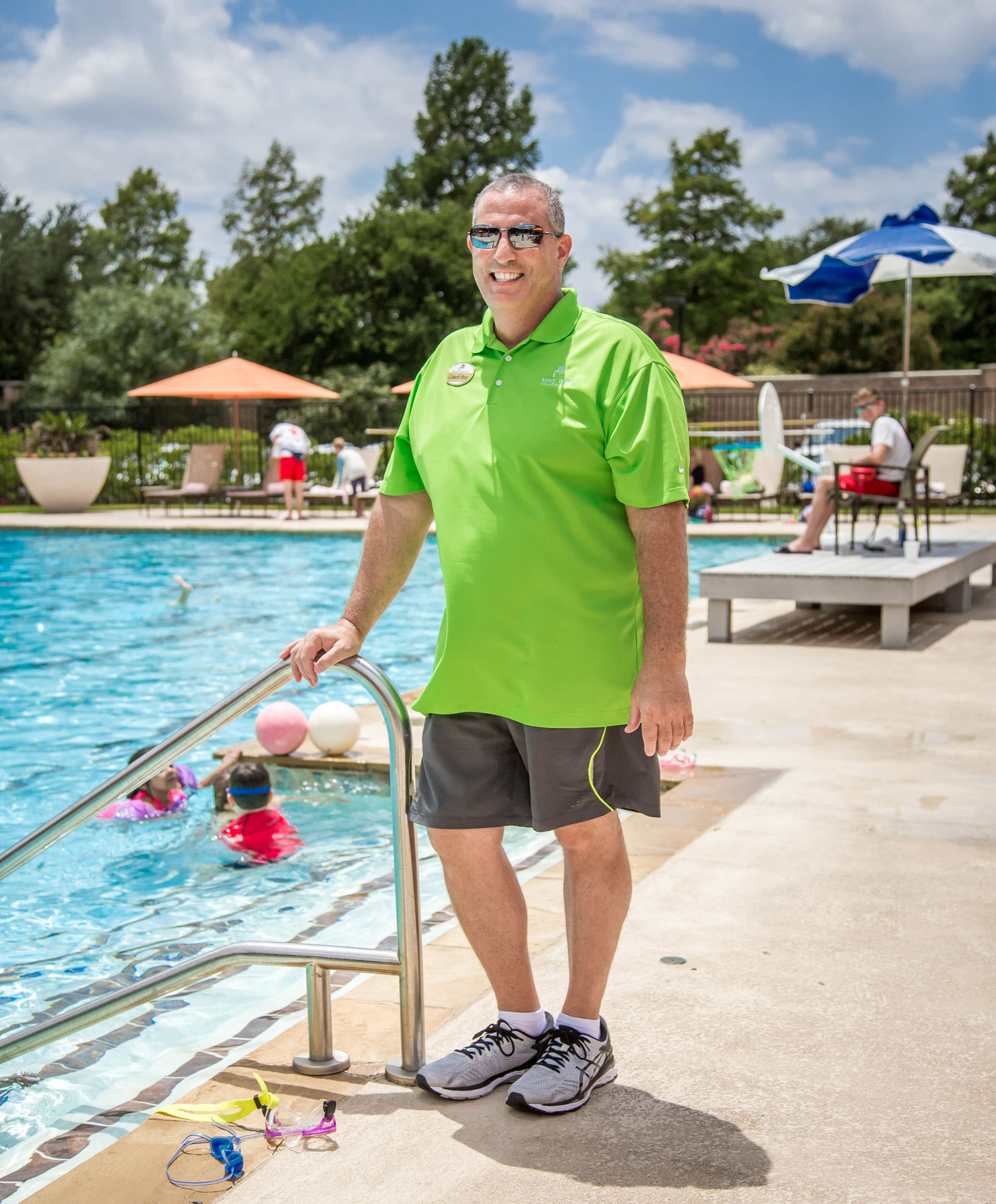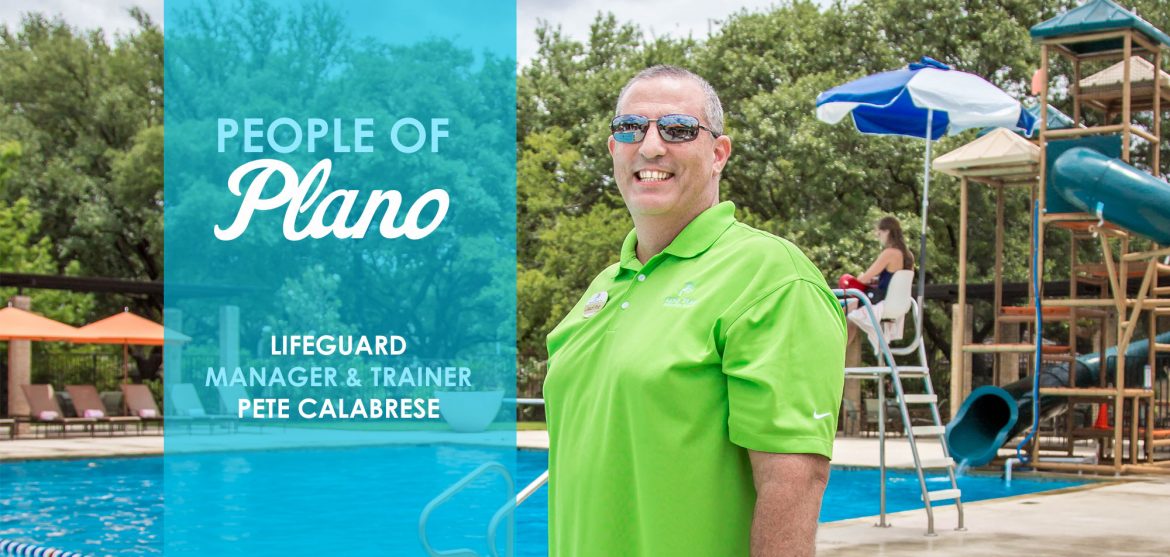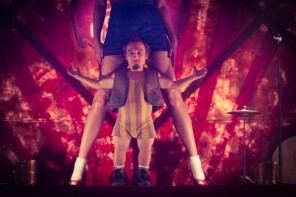After spending years in big company jobs where he was unrecognizable among the many cubicles, Plano citizen Pete Calabrese decided to change his career and return to his first teenage job as a lifeguard. He now manages a country club pool facility and trains older teens and college kids how to save lives.
When did you start lifeguarding?
When I was 15 years old I lifeguarded at two local pools. When I attended Texas A&M I worked for the city of Bryan and lifeguarded at city pools, and also at the University of Louisiana Monroe’s campus pool. More recently I had the opportunity to work for the Texas Pool in Plano, and now I manage and train lifeguards for Bent Tree Country Club in Dallas. I have 25 lifeguards that I’m responsible for training, and I’m also the swim team coach. In all, I’ve lifeguarded 13 years and was a two-time winner of the Texas State Super Lifeguard Competition in ‘97 and ‘98.
Can you describe the changes you see in young people after they become lifeguards?
It’s more than just learning first aid and CPR from the American Red Cross. Kids learn effective communicating skills, how to speak to adults and children alike and how to read situations and their surroundings. They learn what I call “Preventive Lifeguarding.” Being able to read the area and knowing what could happen keeps many accidents from happening.
Some people think being a good swimmer is what makes a good lifeguard but the ability to swim well means nothing. It’s kids who take the job seriously that make the best lifeguards. If you are responsible, can keep your room clean, get yourself ready and get some place on time and are very aware of your surroundings, those are qualities we look for in lifeguards. They see that they are responsible for other people’s lives and they understand the gravity of that.

Have you saved anyone in the water?
In all my years I’ve only been in the water at work to rescue just once. Good lifeguards don’t have a lot of saves. The more I’m on the stand and not having to jump in means I’m doing my job right. I did jump in and rescue a little 3-year-old at a backyard BBQ party one time. She came running out, saw the pool and never stopped running and just splash, sank to the bottom. Thankfully that instinct to always watch the water has never left me, even when I had other careers, and I jumped right in and got her. It was before cell phones so the only thing in my pockets that got soggy was my wallet! On a more serious note, I did assist in CPR on a gentleman who’d had a heart attack in a locker room when I worked in Bryan years ago. A nurse found him first and I assisted; he was gone as soon as it happened but it’s our job as lifeguards to provide first aid until the professional help arrives from the paramedics.
What has lifeguarding taught you?
It’s given me a distinct respect for life. Accidents can happen quickly, and you have to be on your toes and respond quickly and have intense focus. If you’re not mentally and physically tired at the end of your shift, you didn’t do it right.





